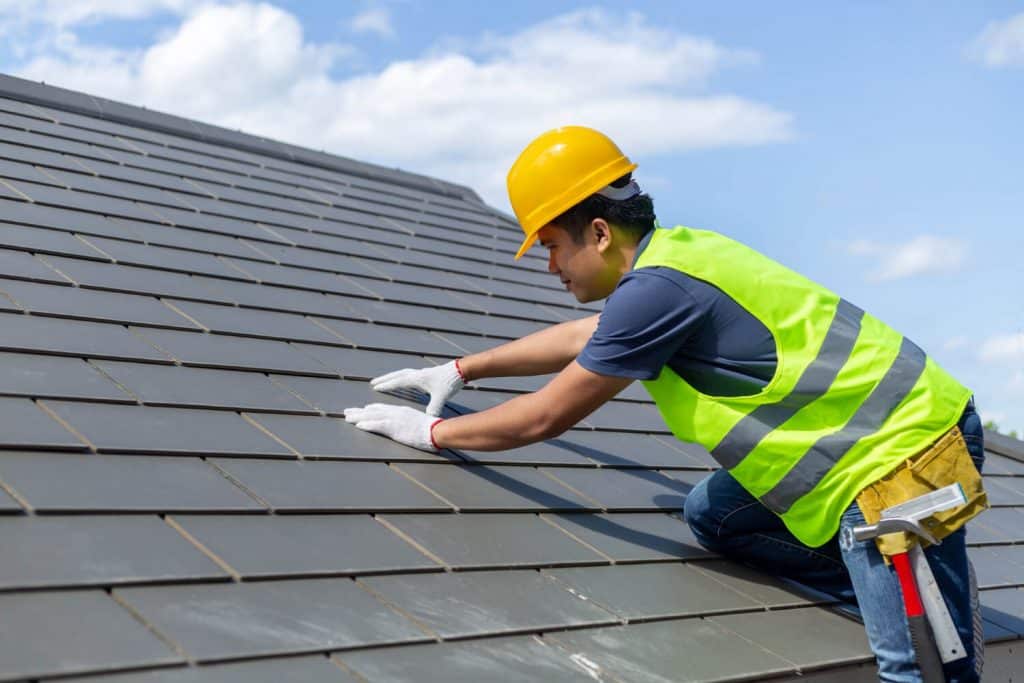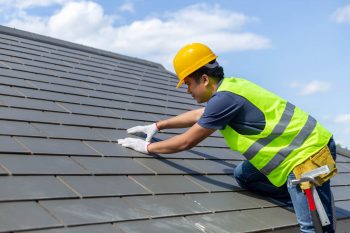
A roof replacement project can be a headache and can turn out to be an expensive home renovation or home repair undertaking. There are many elements to consider when renewing a roof, such as which material fits your home, what questions you need to ask a contractor, and what goes into a roof repair agreement.
After you've estimated the material options — wood, asphalt, synthetic, clay/concrete or slate, or metal roofs — it's time to examine your possible contractor further. Start with basic questions that help you learn more about their work, experience, and method of roof repair jobs.
- What's the official company name and physical address? If they have a post office box as a physical address may be a red flag as it may indicate a fly-by-night operation.
- Do you have liability insurance and workmen's compensation and? The first one protects you if the contractor's work is injured while on the job; the second one provides coverage should damage happen to your roof or property while work is being done. Ask for a copy of the policy documents as proof of the insurance coverage.
- Will you do the work, or will you outsource it? Using a subcontractor is not unusual; however, if one is used, ask for a charge waiver; this protects you if the subcontractor is not paid.
- Do you have a current permit in my state, and are there any outstanding violations? Be sure to cross-check the information if you are not comfortable with the answers. Do ask for a copy of the permit.
- Do you have recommendations to share?
- How extended is your warranty? The bare minimum for a roof is typically a year.
- Who will observe the job on-site?
- Does the material selection need any particular work, such as framing, ducting, etc.?
- Does the roof material meet the required local codes, including fire laws?
After you've picked a contractor, you should get a written roof repairment agreement. It should contain these eight things:
- A brief, written assessment that states the number of supplies needed and labor charges. This should cover the description of the job to be done and the quotation.
- Removal of the previous roof. This is the only way to check that the existing structure doesn't have any problems.
- Plywood sheeting. This goes under the shingles.
- Edging. Where a roof reaches the edge of a home, say against a chimney, is a possible source of leakage. Metal or drip edging used in these critical spots directs moisture toward gutters.
- Gutter protection. This should show that any damage done to the current gutters will be replaced or repaired.
- Wastage collection and removal.
- Home protection during construction in case of rain and wind.
- Work blueprint including approximate start and completion dates and payment procedures.
Your roof is often your first line of defense against severe weather. By strengthening or fortifying your roof, your home's structure is less likely to sustain heavy damage from wind, hail, and water compromising your roof covering. I hope these tips help!


